Agricultural assets have been lost, destroyed or degraded, severely comprising food production, causing extensive damage to livelihoods and high unemployment rates.
Agriculture remains the main source of livelihoods for the bulk of Yemenis, especially women, living in rural areas.
Long-term interventions towards improving food security and strengthening the resilience of female farmers while restoring the agriculture sector of the country is of utmost importance.
The rural and mountainous area of Manakhah in specific saw a decrease in agricultural production, worsening – already severe – poverty among villagers. The project thus aims to improve the livelihoods of local farmers and communities in Manakhah district, Yemen by restoring coffee farming in the region.
The project will support female farmers in setting up and running a coffee plantation business, which will contribute to their economic empowerment and will enhance their livelihoods.
10,000 Ready for planting coffee seedlings will be distributed to women free of charge in order they could start the coffee farming business. The project will directly benefit 100 women living in the village of Almaghrabah and indirectly 670 people in the same village.
The women will be responsible for maintaining coffee plantations. It will take approximately 3 years for the newly planted coffee trees to bear fruit. Beneficiaries and their families will manage to pick cherries by their own means avoiding harvesting costs. The profits from the harvests will directly go to the women, enhancing their livelihoods and agricultural productivity growth in the region.
Awareness raising and consultation workshops will be launched to sensitize women to more productive and sustainable coffee growing techniques, including the role of forestry in combating desertification. Business seminars will also be delivered by a local trainer to increase entrepreneurship and farmers’ abilities to manage their farms as small businesses.
A tree is a long term investment for the Yemeni people. It does not only represent the symbol of life but the promise of a better future.
In the future, the objective will be to replicate the same project with as many villages as possible!
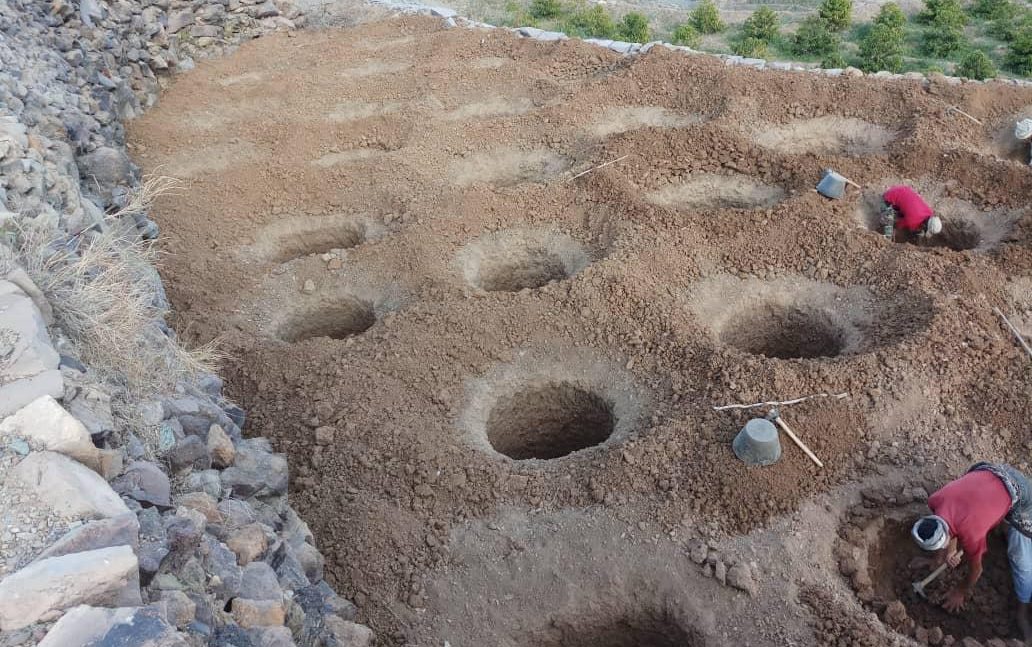
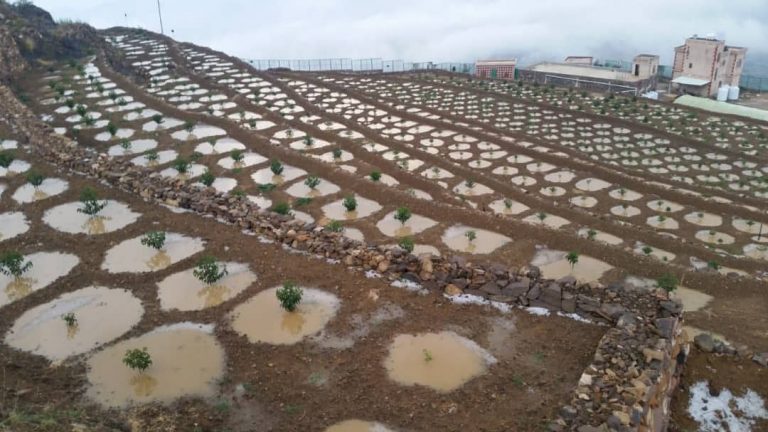
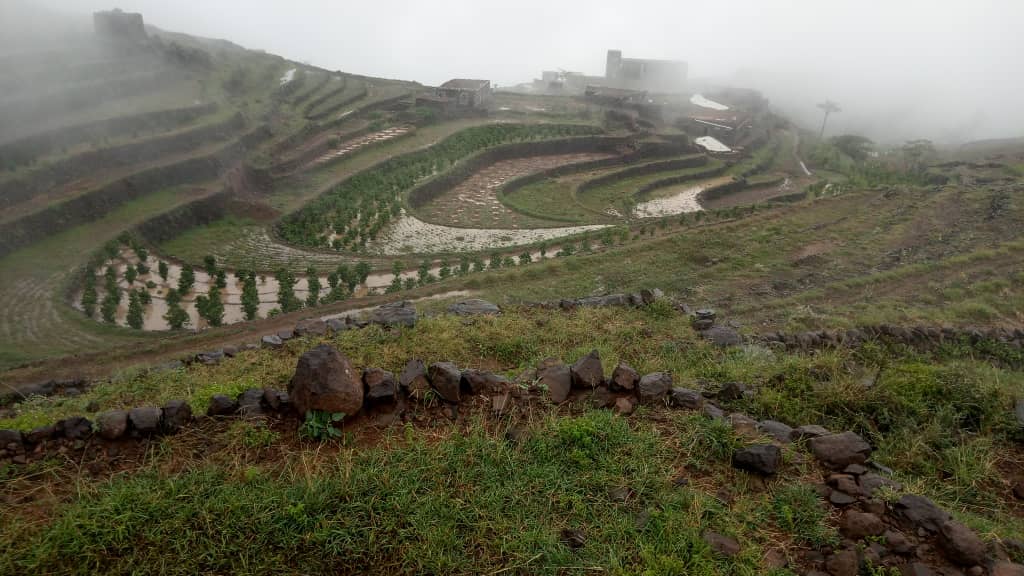
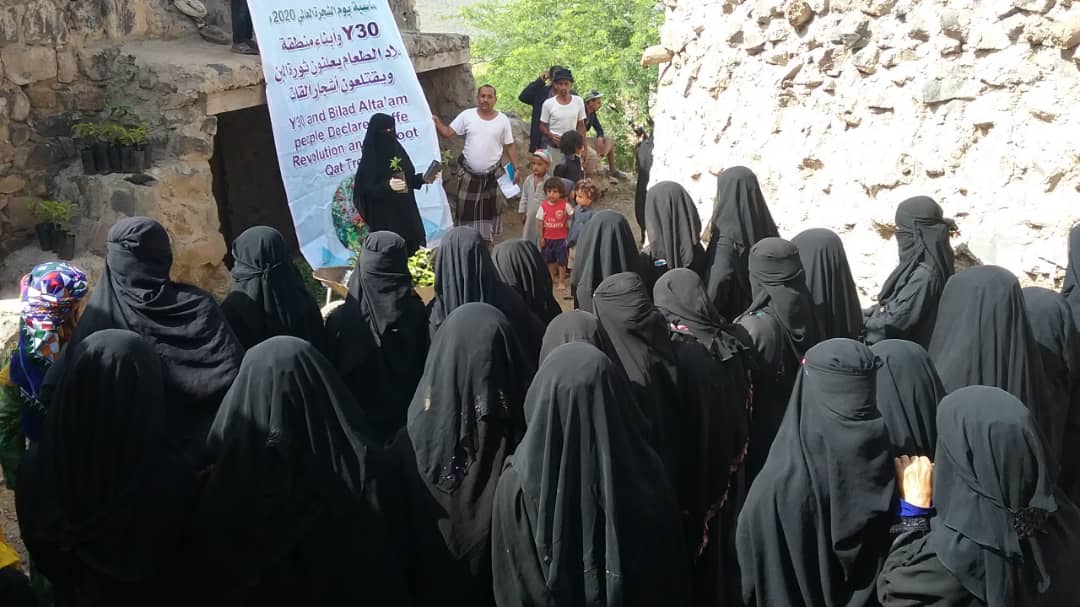
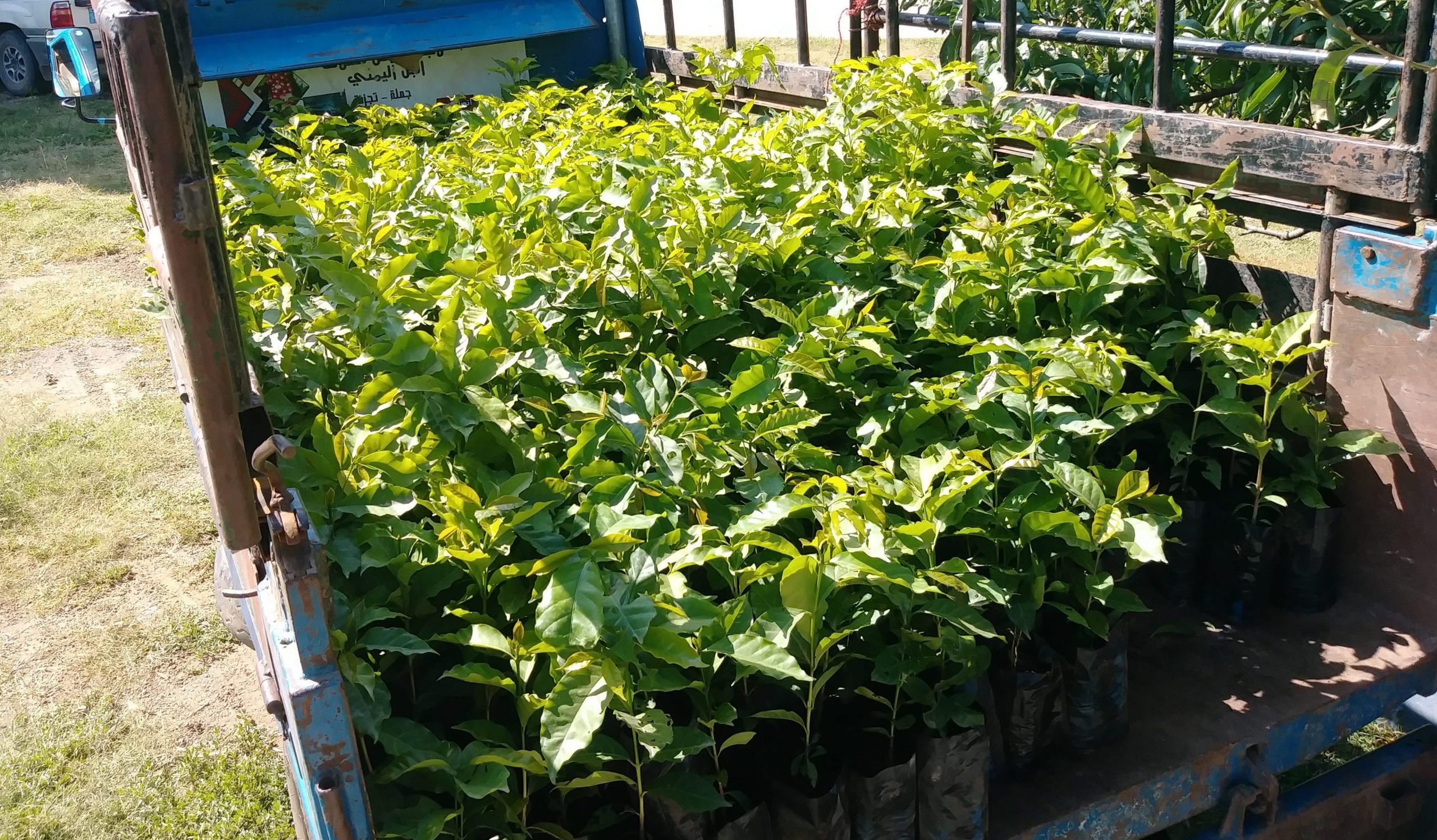
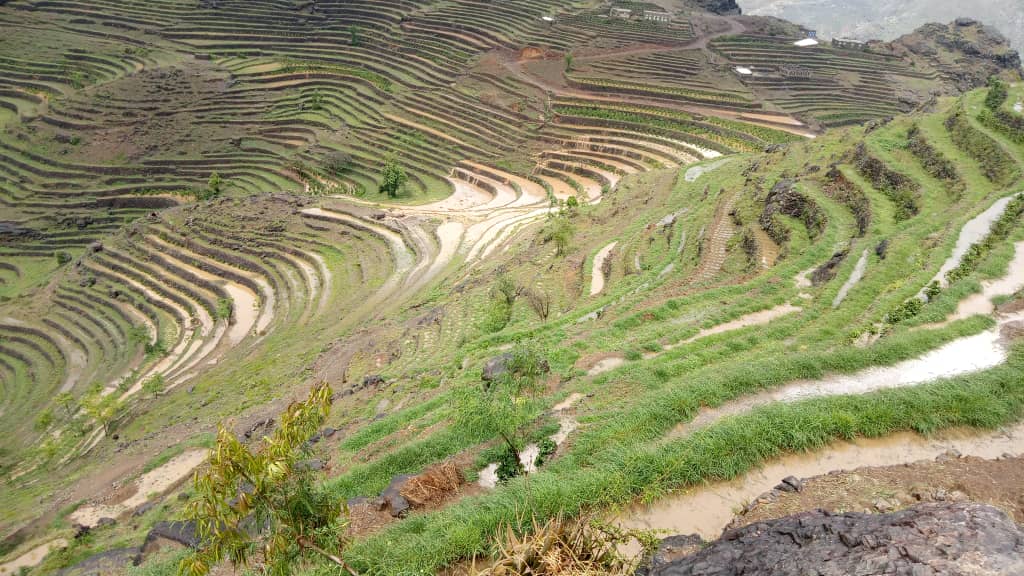
Some figures:
- 10,000 coffee trees distributed and planted free of charge
- 100 beneficiaries
- 100 coffee trees per women
- 3 business trainings
- 3 sustainable coffee growing trainings